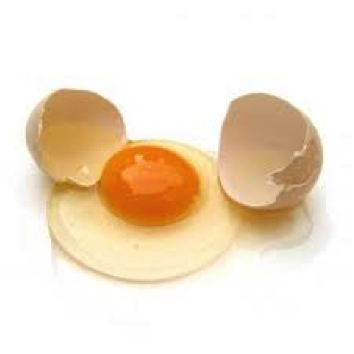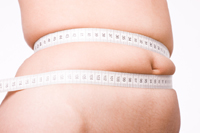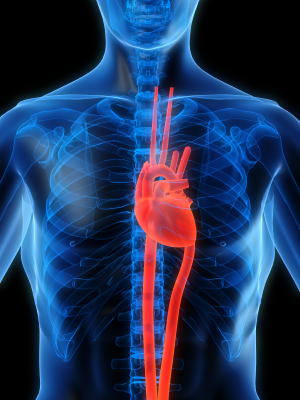


No shortcuts or cheap imitations.
Plus toll-free telephone orders, too!
What They NEVER Told You About Eggs
By Cassandra Forsythe-Pribanic, PhD, RD
 The Egg: this three letter word invokes almost as much fear into the hearts of Americans as our other favorite “deadly” three-letter word: F-A-T.
The Egg: this three letter word invokes almost as much fear into the hearts of Americans as our other favorite “deadly” three-letter word: F-A-T.
However, it’s finally time to crack the misconception that eggs are bad for our health, because they’re absolutely not.
It’s unfortunate, but many people still think that you cannot eat more than one egg per day, or even more than 3 eggs per week because if you do, you’ll develop high blood cholesterol levels and fatty arteries. But, this could not be farther from the truth.
So, why do we think this way?
In the 1960’s consumers were first “warned” about eggs as being a major player in the development of heart disease… without any conclusive evidence to back up this claim. News articles overwhelmingly focused on the egg- cholesterol - heart disease link when there was no real proof for this message.
Eggs were so demonized that egg substitute products became all the rage for cooking and baking, but they were no better, and sometimes far worse, than the whole egg itself.
Today, consumers need to understand that eggs are not evil, but in fact are healthy and important components of our diets.
High Protein Quality
First and foremost, eggs an inexpensive source of high quality protein that almost everyone can enjoy in various ways – from scrambled eggs to deviled eggs to green eggs and ham, eggs are a versatile way to quickly and easily get more protein in your diet. And, they’re not just for breakfast, but for lunch and dinner too!
In terms of protein quality, most foods rich in protein are measured in terms of the availability of that protein to effectively promote growth (cell growth), and this term is known as biological value.
Based on the amino acids contained in an egg and its ability to stimulate growth, egg protein is only second to mother’s milk for human nutrition.

On a scale, with 100 representing top efficiency, these are the biological values of proteins in several foods:
|
Whole Egg |
94 |
|
Milk |
85 |
|
Fish |
76 |
|
Beef |
74 |
|
Soybeans |
73 |
|
Beans, dry |
58 |
Biological Value of Protein Foods
Nutrition Powerhouses
Secondly, eggs are powerhouses of nutrition:
• Eggs are among the few sources of naturally occurring vitamin D and K, which are known for cancer protection and longevity.
• Eggs contain the highest source of dietary choline (125mg/egg), which is a nutrient necessary for proper nervous system development and structural integrity of cell membranes; particularly, choline is necessary for brain development in infants to impart lifelong enhancement of memory and attention.
• They supply 6.3grams of high quality protein, 5 grams of fat primarily consisting of an even balance of saturates and monounsaturates, with less polyunsaturates, and barely no carbohydrates at all; they’re the perfect low carbohydrate food.
• Some designer eggs contain up to 200 mg of DHA, the essential omega-3 fatty acid needed by all humans for normal development and functioning, and prevention of depression and memory loss.
• The whole egg contains 166 mcg of lutein and zeaxanthin, two super antioxidants that contribute to eye health and prevent common causes of age-related blindness; research shows that the bioavailability of these nutrients from eggs is higher than other foods with higher contents.
Eggs Do NOT Cause Heart Disease
 In November 2010, a paper was published by Canadian medical researchers entitled, “Dietary cholesterol and egg yolks: not for patients at risk of vascular disease”.
In November 2010, a paper was published by Canadian medical researchers entitled, “Dietary cholesterol and egg yolks: not for patients at risk of vascular disease”.
The authors stated that: “Patients at risk of cardiovascular disease should limit their intake of cholesterol. Stopping the consumption of egg yolks after a stroke or myocardial infarction would be like quitting smoking after a diagnosis of lung cancer: a necessary action, but late.”
However, prior to this paper, over the past 10 years, numerous studies, both clinical and observational, were published with the findings that there is no connection between egg consumption and heart disease risk, especially in healthy individuals.
For example, Dr Maria-Luz Fernandez and colleagues have been investigating egg nutritional health for more than a decade and have published findings such as:
• “Revisiting Dietary Cholesterol Recommendations: Does the Evidence Support a Limit of 300 mg/d?”. Overall, no study has yet shown an association between egg intake and risk for heart disease and there is no compelling epidemiological or clinical trial results that show compelling evidence for limiting cholesterol intake to 300 mg/day or restricting egg consumption.
• “Dietary Cholesterol from Eggs Increases Plasma HDL Cholesterol in Overweight Men Consuming a Carbohydrate-Restricted Diet”. Raising HDL cholesterol is often called impossible, but is necessary to protect against plaque build-up in your arteries (HDL carries it away). This study shows that it can be easily increased in overweight men (a population very susceptible to heart disease) by reducing carb intake and using eggs in the diet regularly.
• ‘Pre-menopausal women, classified as hypo- or hyper-responders, do not alter their LDL/HDL ratio following a high dietary cholesterol challenge”. When 50 pre-menopausal women (another very susceptible heart disease population) were given either an egg a day plus cholesterol from other foods, or a cholesterol-free egg substitute for 30 days, did not experience the development of an ‘atherogenic lipoprotein profile” regardless if they were hyper or hypo-responders to dietary cholesterol.
Overall, dietary cholesterol from eggs does NOT cause heart disease, rather a lifestyle and a diet high in foods that elicit increased inflammation, hyperglycemia and oxidative stress induces increased atherosclerotic build-up and increased risk for heart attack or stroke (among other diseases)..jpg)
As such, it is wise to follow a diet low in sugar, void of processed foods, artificial chemicals (flavors and colors), preservatives and pesticides and avoid smoking and excessive alcohol consumption, and replace it with a whole foods, natural, plant-rich diet balanced in protein, carbohydrates and fat to minimize heart disease risk.
Avoiding eggs is not the answer – in fact, including eggs in your wholesome diet will actually benefit you more . Two eggs provide 13 grams of protein, ~10 grams of fat, and plenty of nutrients you barely find in any other foods. This will keep you satisfied, healthy and energized for hours after any meal and will help you choose other healthy foods at the right times.
However, If you choose not to live a healthy lifestyle with whole foods, adequate sleep, plenty of exercise and minimal toxins, and/or you already have heart disease, you may be advised to limit your intake of egg yolks because it may acerbate your current situation.
References:
JD Spence, DJ Jenkins, J Davignon. Dietary cholesterol and egg yolks: Not for patients at risk of vascular disease. Canadian Journal of Cardiology, 2010; 26 (9): e336-e339
Quereshi AI, et al. Regular egg consumption does not increase the risk of stroke and cardiovascular diseases. Med Sci Monit. 2007;13(1):CR1-
Kritchevsky SB and Kritchevsky D. Egg consumption and coronary heart disease: an epidemiologic overview. Journal of the American College of Nutrition. Volume 19, Number 5 (Supplement), Pages 549S-555S. October 2000.
Fernandez M and Calle M. Revisiting Dietary Cholesterol Recommendations: Does the Evidence Support a Limit of 300 mg/d? Curr Athero Rep 2010. 12: 377-183
Ratliff J et al. Dietary Cholesterol from Eggs Increases Plasma HDL Cholesterol in Overweight Men Consuming a Carbohydrate-Restricted Diet. Nutr Res. 2009. 29. 262-268
Herron K et al. Pre-menopausal women, classified as hypo- or hyper-responders, do not alter their LDL/HDL ratio following a high dietary cholesterol challenge. J Am Coll Nutr. 2002. 21(3) 250-8
 If you order a JayLabPro SmartShip product or any Combo Package, we will automatically ship you a new supply of the product or products you have ordered every month, starting 30 days after your initial order is shipped, and continuing until you cancel. The credit card you are using today will be billed the lowest available price for those product or products when your order is shipped, but shipping will be FREE. You may log into your customer account or call our customer service department toll-free at 1-888-9GETPRO (1-888-943-8776) between the hours of 8am – 9pm EST Mon-Fri to cancel future shipments, customize the timing of your shipments, or change the credit card used for billing.
If you order a JayLabPro SmartShip product or any Combo Package, we will automatically ship you a new supply of the product or products you have ordered every month, starting 30 days after your initial order is shipped, and continuing until you cancel. The credit card you are using today will be billed the lowest available price for those product or products when your order is shipped, but shipping will be FREE. You may log into your customer account or call our customer service department toll-free at 1-888-9GETPRO (1-888-943-8776) between the hours of 8am – 9pm EST Mon-Fri to cancel future shipments, customize the timing of your shipments, or change the credit card used for billing.








